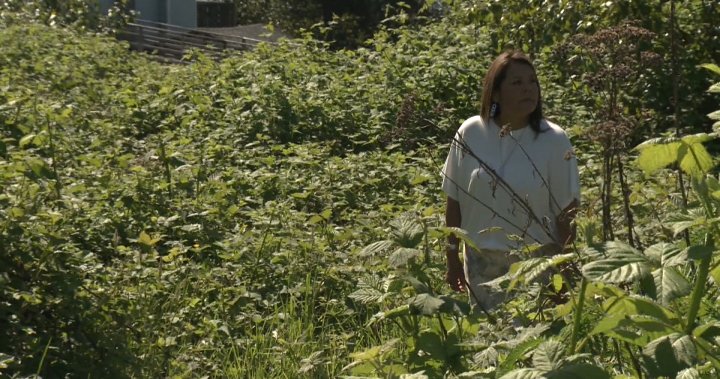Andrea Aleck, the Tsleil-Waututh Nation health and wellness director, is planning to transform an empty lot in the heart of the Tsleil-Waututh Nation reserve into a residential school memorial park and garden. After consulting with community Elders, Aleck hopes to create a space where the Tsleil-Waututh Nation can come together each year to pay their respects to residential school survivors who did not return home. The park will also serve as a way to honor and recognize the resilience of those who did survive such a traumatic period in Indigenous history.
The proposed location for the garden is between Alder Court and Takaya Drive, across from the Tsleil-Waututh Nation School. The park will not only feature a garden space, but also areas for ceremonies, storytelling, and a wild area with native evergreen trees such as sequoia and cedar trees. Memorial plaques, carvings, and covered areas will also be included in the design to create a space for reflection and healing for survivors and community members.
The garden is part of the nation’s five-year food sovereignty vision and strategy, which also includes plans for a community garden, hydroponics farm, and orchard. These additional components have already been approved by the chief and council. Should the project receive proper funding and find a builder, it will require significant civil engineering work and is estimated to take around two years to complete. The recent discoveries of unmarked graves at residential schools across Canada have brought renewed attention to this dark chapter in history, further highlighting the importance of creating spaces for healing and remembrance.
Aleck is hopeful that the memorial park and garden will not only serve as a healing space for the Tsleil-Waututh Nation community but also as an educational tool for surrounding neighbors and visitors. By sharing Indigenous history and culture, the space aims to be a catalyst for reconciliation and understanding. The Tsleil-Waututh Nation is currently accepting bids for the project until May 24, with the goal of bringing people together to learn, reflect, and honor the legacy of residential school survivors.
In summary, Andrea Aleck’s vision for a residential school memorial park and garden in the Tsleil-Waututh Nation reserve aims to provide a space for healing, remembrance, and education. The project, which has been inspired by conversations with community Elders, will feature garden spaces, areas for ceremony, and a wild area with native trees. The garden is part of the nation’s food sovereignty strategy and is intended to be a place for reflection and healing for survivors and community members. The project, if funded and built, could take around two years to complete and serve as a key stepping stone in the reconciliation journey.


